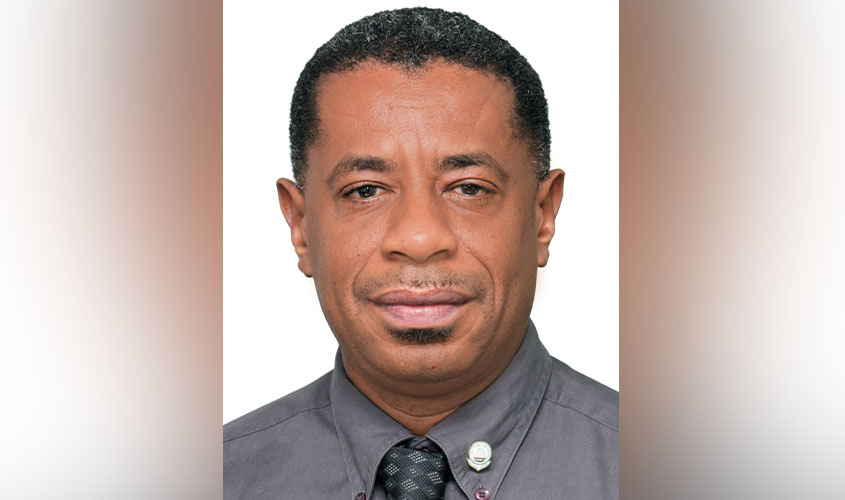
When Grenadian Aaron Logie received his Master of Business Administration from St. George’s University in 2009, he was one of several charter graduates of the University’s new MBA program that had started two years earlier.
According to Mr. Logie, the program had a profound impact on the course of his career. Today, he serves as the executive manager of finance at the Grenada Co-operative Bank Ltd., where he is in charge of investment portfolios, liquidity management, and regulatory reporting for the institution. In addition, Mr. Logie expects to complete his doctorate in finance from SGU later this year, giving him a unique perspective on the banking sector in the Caribbean.
He shared with SGU News why he chose to complete his MBA degree at SGU and how it aided his career development in business and finance.
St. George’s University: What inspired you to pursue business and finance as a profession?
Mr. Logie: The primary motivation that has driven me along my career path was my love for utilizing logic and reasoning to find solutions to problems. I discovered this early on as a student of accounting. Soon after I took my Association of Certified Chartered Accountants (ACCA) exams. During my career I have held several roles in the field of finance and accounting prior to joining the Grenada Cooperative Bank Ltd., which prepared me for the role I am in now and the challenges in managing the finances of a bank.
SGU: Why did you choose to enroll in SGU’s MBA program?
Mr. Logie: The launch of the MBA program by SGU in 2007 was a watershed moment in Grenada for higher education and for the field of business management. No longer did one have to travel to another country at significant cost and inconvenience to achieve an MBA or settle for a corresponding degree.
The interactive nature of the program afforded several advantages that attracted me in addition to it being an inexpensive program. Importantly, being in the charter class has allowed me to network with fellow business professionals who received their degrees from SGU.
[av_testimonial_single src=’101502′ name=’Aaron Logie, MBA 2009′ subtitle=” link=’http://’ linktext=” av_uid=’av-w4wg7v’]
“I believe that attaining my MBA at SGU enabled me to broaden my perspective of the business environment, particularly the intangibles and qualitative aspects that are not within the domains of the accounting practice.”
[/av_testimonial_single]
[/av_testimonials]
SGU: How do you think SGU aided you in your career development?
Mr. Logie: I believe that attaining my MBA at SGU enabled me to broaden my perspective of the business environment, particularly the intangibles and qualitative aspects that are not within the domains of the accounting practice.
SGU: What are some major takeaways from your MBA education that continue to resonate in your job today?
Mr. Logie: Obtaining my MBA encouraged me to hone in on my presentation and team-working skills, since most courses at the MBA level required students to make presentations as part of group projects. This enhanced my confidence and skills in making presentations at board and senior management meetings.
SGU: Why did you return to SGU for your PhD and how will the advanced degree impact your work at the bank?
Mr. Logie: I think it will expand my knowledge. My thesis has a specific focus on the banking industry in the Eastern Caribbean. To be specific, the topic is “Sustainability of the Indigenous Banking Sector in the Eastern Caribbean.” Hence, it will allow be to make an important contribution to not only the bank where I work, but to the entire industry in the Eastern Caribbean.
SGU: Do you still communicate with other MBA graduates from your class?
Mr. Logie: Yes, and we all feel that SGU was a special place.
SGU: What advice would you give both to new students and those about to graduate from the School of Graduate Studies?
Mr. Logie: Ultimately, the goal of higher education should be to empower one in his or her thinking. Obtaining the certificate or diploma should not be the end game. Rather, getting the degree will enhance one’s ability to utilize a body of knowledge acquired to help shape decision making process that will result in superior results and a better world.
– Paul Burch